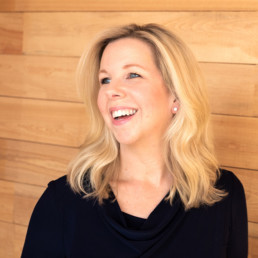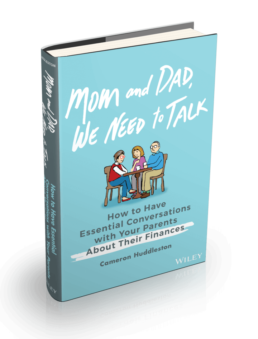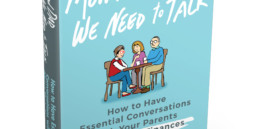January 16 marks the fourth anniversary of my mother’s death.
She lived with Alzheimer’s disease for more than 12 years, during which time I was her primary caregiver. Cognitive decline was joined by cancer in her last two years of life. Then, she tested positive for COVID-19 on January 11, 2021. The memory care facility where she lived wouldn’t allow her to quarantine there, so I cared for her in my home during her final days.
Over the years, I’ve spoken and written a lot about caring for my mom and managing her finances. The experience, in part, inspired to write Mom and Dad, We Need to Talk to encourage adult children to talk with their parents about their parents’ finances, estate planning, long-term care plans and final wishes before emergencies and worst-case scenarios happen. I suppose you could say I’ve turned lemons into lemonade.
But when a reporter recently asked if I thought my mom would be proud of me for educating others, I struggled to answer the question. To be honest, I’ve often wondered whether she was disappointed in me.
Caregiver guilt continues to plague me. I can’t seem to shake it no matter how many times I tell myself that I did the best I could.
I was talking about this guilt last night with my husband, who reminded me that I did so much for my mom and that continuing to second-guess myself will only fuel my feelings of guilt. Then he offered some advice. He told me to put my feelings into words to give them a place—a practice he’s been using successfully to reduce his tendency to ruminate. So I’m doing that here to help myself and any other caregivers struggling with feelings of guilt.
Caregiver guilt is normal
With so many experts and articles trying to put a positive spin on caregiving by claiming that it’s an honor to support loved ones in their time of need, it’s easy to tell yourself you must be doing something wrong if you have negative feelings.
But there’s a lot to feel guilty about when it comes to caregiving, especially caring for a parent. You might feel guilty that you didn’t get involved sooner. You might feel guilty that you aren’t patient enough, aren’t doing enough, aren’t saying the right things or making the right decisions. You might feel guilty because you are stressed, frustrated, angry or resentful.
Studies have found that a majority of caregivers have experienced guilt in relation to their caregiver role. In fact, caregiver guilt is so common that researchers have actually developed a questionnaire to measure it and determine to what extent it is associated with clinical issues such as depression.
So, if you’re experiencing any sort of guilt related to caregiving, it’s OK to acknowledge it. Most people in your position feel the same way (and my guess is that any caregiver who says they’ve never felt guilty doesn’t want to admit their true feelings).
Ask why you’re feeling guilty
If you heed the advice of counselors and psychologists, the first step for coping with guilt is identifying the source. I can pinpoint three key reasons I feel guilty.
Reason 1: I’m a people pleaser who hates confrontation, and so was my mom. So, it eats me up inside that I likely said or did things that upset my mom when I was learning to navigate her dementia. She didn’t complain or push back, but I could see the hurt in her eyes at times.
Reason 2: I hated making the tough decisions to sell her home and move her in with me then to move her into memory care when I could no longer provide the care she needed.
Reason 3: I feel I could have done more. As a child, you feel so much pressure to make the same sacrifices your parents made for you. So, I question whether I could have made more sacrifices when caring for my mom.
Stop looking for reasons to feel guilty
As a caregiver, it’s easy to dwell on what you think you are doing—or did—wrong (especially if there’s judgement from the person receiving care, too). Often, the go-to advice for caregivers who are feeling guilty is to give themselves grace.
For me, being told to forgive myself just doesn’t work. I think a more effective approach for this hardened, cynical journalist is to consider the facts and reframe my guilt.
Instead of telling myself that I should have been more patient with my mom when she started showing signs of memory loss, I should remind myself that I had absolutely no experience dealing with someone who had Alzheimer’s disease when my mom was diagnosed at age 65 and I was just 35. It was only natural to make mistakes. I learned from those early mistakes and
became more compassionate and adept at navigating the challenges of caring for someone with Alzheimer’s as the disease progressed.
Instead of second-guessing my decision to move my mom into memory care, I should remember that I couldn’t provide the round-the-clock care she needed while also caring for my three young children. Had my children been grown when my mom was diagnosed with Alzheimer’s, I might have been able to care for her longer. But there still would have come a point when I would have had to rely on professional care to give my mom the care she needed and deserved.
As for that final source of guilt, I have to tell myself what I know to be true. I stepped in and started helping my mom as soon as she was diagnosed with Alzheimer’s disease. I devoted countless hours to managing her finances and care. I spent days and nights at the hospital with her when there were falls, surgeries and other health emergencies. I put my own health at risk to care for her when she had COVID-19. I held her hand as she took her last breath.
At the end, I told my mom it was OK to let go. I think it’s time for me to do the same and let go of my guilt.
Don't Miss Out! ORDER NOW!
"An excellent step-by-step guide to navigate what can be time-consuming, uncomfortable conversations."
- Michelle Singletary, The Washington Post
Related Posts
September 10, 2020
What It’s Really Like When Your Parent Has Alzheimer’s Disease
My mom's decline over the past 12 years…
April 28, 2019
My Biggest Money Regret: Not Talking to My Mom Soon Enough About Her Finances
I learned the hard way that family…

Cameron Huddleston
I am the author of Mom and Dad, We Need to Talk: How to Have Essential Conversations With Your Parents About Their Finances. I also am an award-winning journalist with 20 years of experience writing about personal finance. My work has appeared in Kiplinger’s Personal Finance, Forbes.com, Yahoo!, MSN, and other online and print publications.





I’m glad I found this. I said things I wish I would not have to my Mother with dementia, out of anger and frustration, and have been struggling to get past the guilt. Your words resonated with me and I am feeling a little bit better because of them. Thank you